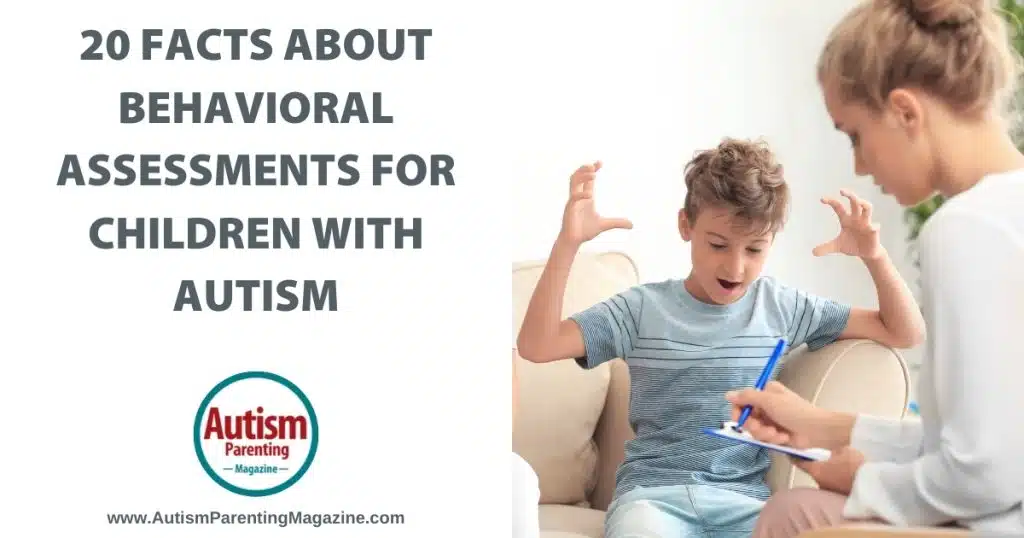Navigating the complexities of autism assessments can be a daunting experience for parents. To help guide you through this journey, we present “Comment on Autism Assessments: Information For Parents,” a extensive resource curated by the experts at Signs of Autism in Teens – They are the Future Autism. Through this article, you will embark on an in-depth exploration of the assessment process, empowering yourself with knowledge and understanding to support yoru child’s well-being.
Illuminating Autism Assessments: Empowering Parents with Understanding
Understanding Autism Assessments: A Parent’s Essential Guide
Essential Information for Parents
Understanding the results of an autism assessment can be daunting for parents. Here’s a simplified guide to help you navigate the process:
Types of Assessments: There are various types of assessments, each with its strengths and weaknesses. Neuropsychological evaluations focus on cognitive abilities, while observational assessments observe your child’s behavior in different settings. Specific Diagnoses: An assessment can result in a diagnosis of autism spectrum disorder (ASD), but it’s important to note that ASD is a spectrum, and individuals may present with varying severity and symptoms.
Individualized Recommendations: Assessments provide valuable insights into your child’s unique strengths and areas for growth. These findings are used to develop tailored recommendations for interventions, therapies, and support services.
Seeking Support: Don’t hesitate to ask questions and seek clarification from your child’s assessment team. connect with support groups, online communities, and other parents who have been through similar experiences.
Unveiling the Puzzle: Signs of Autism in Teens – Exploring Diagnosis and Evaluation
Autism assessments are multifaceted evaluations designed to identify the presence of autism spectrum disorder (ASD) in teenagers. The diagnostic process typically involves a comprehensive history of the individual’s development and behavior, as well as direct observation and engagement with the teen. Additional assessments, such as cognitive testing, speech and language evaluations, genetic screening, and functional assessments, might potentially be included to gather a complete understanding of the individual’s strengths and challenges. By utilizing a combination of approaches, these assessments aim to provide a detailed picture of the teen’s unique characteristics and specific areas of need, ultimately informing appropriate interventions and support.
Guiding the Journey: Navigating Assessment Options and Making Informed Choices
Guiding the Assessment Journey
Navigating the complexities of autism assessments can be a daunting task for parents. However, it’s a crucial step in understanding your child’s needs and accessing appropriate support.To make informed choices, it’s essential to arm yourself with knowledge:
Types of assessments: – Comprehensive assessment: A thorough evaluation that includes a series of tests, observations, and interviews - Diagnostic assessment: Focuses specifically on determining whether your child meets diagnostic criteria for autism – Functional assessment: assesses how autism impacts daily living
Assessment providers: – Developmental pediatricians: Medically trained doctors specializing in child development – Child psychologists: Trained in assessing and diagnosing mental health conditions – Speech-language therapists: Specialize in assessing and treating communication difficulties
* Factors to consider: – Child’s age, development, and symptoms: Assessments vary based on these factors – Goals of assessment: Determine if further assessment or intervention is needed – Assessment provider’s qualifications and experience: Look for providers with specific training in autism assessment
By understanding the options and making informed choices, parents can guide their children through the assessment process with confidence, ensuring they receive the necessary support for their unique needs.
Building Bridges: Enhancing Communication and Advocacy through Understanding
We understand that navigating the journey of autism assessments can be daunting. To empower you as parents, we offer resources and connect you with professionals who can provide tailored guidance.Remember, every child is unique, so assessments should be focused on identifying their strengths and areas where additional support may be beneficial.You are not alone in this journey, and by embracing understanding and collaboration, we can build bridges of communication and advocacy that will empower your child to reach their full potential.
The Conclusion
Embrace the journey
As you navigate the complexities of assessing autism, remember you are not alone.Embrace the journey with a discerning eye, utilizing the insights gained through this article. Seek support from trusted professionals and embrace the information shared by those who understand the unique challenges and triumphs of autism. Together, let’s empower our teens with boundless opportunities and forge a future where they can thrive, embrace their strengths, and live life on their own terms.
